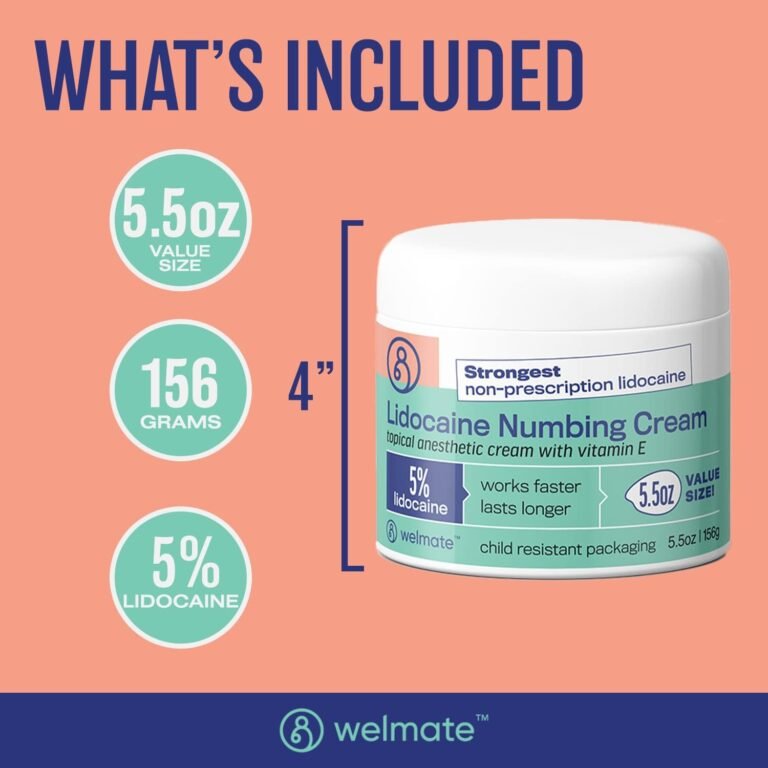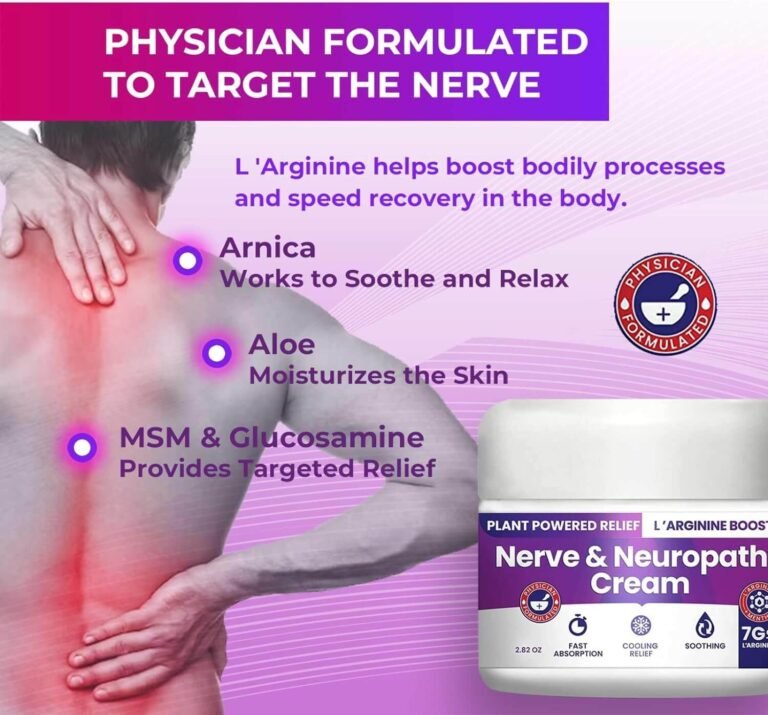Jaw and TMJ Pain Relief Products
Jaw and TMJ pain can be debilitating, but finding relief is possible with the right products and treatments. TMJ, also known as temporomandibular joint disorder, can be caused by various factors, including acute injury, an improper bite, teeth grinding, or stress and anxiety. Fortunately, there are options available to help alleviate the discomfort and improve overall quality of life.
Key Takeaways:
- TMJ pain can be caused by acute injury, an improper bite, teeth grinding, or stress and anxiety.
- Treatment options include orthodontic devices, such as Invisalign, Botox injections, custom-fit night guards, hot and cold compresses, and muscle massage.
- Over-the-counter pain medications like NSAIDs, as well as stronger prescription medications, may provide temporary relief.
- Working closely with a healthcare professional is crucial for monitoring the effects of medications and addressing any side effects or interactions.
- Lifestyle changes, such as adopting a softer food diet, can also help relax the jaw muscles and alleviate pain.
Understanding Jaw and TMJ Pain
Jaw pain and TMJ disorders can have various causes, and understanding them is essential to finding effective relief. Temporomandibular joint disorder, commonly known as TMJ, can be triggered by acute injuries, an improper bite, teeth grinding, or stress and anxiety. These factors can lead to discomfort, pain, and limited movement in the jaw joint, making everyday activities like eating, speaking, and even yawning challenging.
To address jaw and TMJ pain, it is important to explore the underlying causes. Some individuals may experience acute injuries to the jaw, such as from accidents or sports-related incidents. Others may have an improper bite, where the upper and lower teeth do not align correctly, placing additional strain on the TMJ. Teeth grinding, also known as bruxism, can also contribute to jaw pain and TMJ disorders, as the constant clenching and grinding can place excessive pressure on the joint. Additionally, stress and anxiety may lead to muscle tension in the jaw, exacerbating the discomfort.
Thankfully, there are various treatment options available to alleviate jaw and TMJ pain. Orthodontic devices, such as Invisalign, can help correct improper bites and reduce stress on the TMJ. Botox injections, when administered by qualified professionals, can also relax the muscles around the jaw joint, providing relief. For those who grind their teeth, custom-fit night guards can be used to protect the teeth and reduce pressure on the TMJ. Additionally, simple remedies like using hot and cold compresses on the affected area and massaging the muscles surrounding the joint can help ease the pain.
While over-the-counter pain medications like NSAIDs may provide temporary relief, it is important to consult with a healthcare professional for proper diagnosis and guidance. In some cases, stronger medications may be prescribed, such as corticosteroids, opioids, antidepressants, muscle relaxants, anticonvulsants, benzodiazepines, or even medical cannabis, to address severe pain and inflammation. However, close monitoring of the effects of these medications, as well as addressing any potential side effects or interactions, should be done under professional supervision.
| Common Causes of Jaw and TMJ Pain | Treatment Options |
|---|---|
| Acute injuries to the jaw | Orthodontic devices (Invisalign) |
| Improper bite | Botox injections |
| Teeth grinding (bruxism) | Custom-fit night guards |
| Stress and anxiety | Hot and cold compresses, muscle massage |
Treatment Options for Jaw and TMJ Pain
There are several treatment options available for jaw and TMJ pain, ranging from orthodontic devices to non-invasive techniques. These options aim to provide relief and improve the overall comfort of individuals experiencing jaw pain and discomfort associated with TMJ disorder. Some of these treatment options include:
- Invisalign: This orthodontic device can help correct misalignment of the jaw, reducing tension and pressure on the TMJ. It offers a more comfortable and discreet alternative to traditional braces.
- Botox injections: Injecting Botox into the muscles surrounding the TMJ can help relax them, alleviating pain and reducing the frequency of jaw clenching and teeth grinding.
- Custom-fit night guards: These oral appliances are designed to be worn while sleeping, providing a cushioning effect and preventing teeth grinding and clenching that contributes to TMJ pain.
- Hot and cold compresses: Applying hot or cold compresses to the jaw joint can help reduce inflammation and alleviate pain. Alternating between the two temperatures can provide further relief.
- Massaging the muscles: Gently massaging the muscles around the jaw joint can help relax tension and improve blood circulation, promoting healing and reducing discomfort.
It is important to consult with a healthcare professional to determine the most suitable treatment option for your specific condition. They can assess your symptoms, provide a proper diagnosis, and recommend the appropriate course of treatment. Additionally, they can monitor the effects of the chosen treatment and address any potential side effects or interactions.
Incorporating lifestyle changes can also complement the chosen treatment options. For example, adopting a softer food diet can help reduce the strain on the jaw muscles, promoting relaxation and minimizing pain. An individualized treatment plan that combines various strategies can lead to effective long-term management of jaw and TMJ pain, improving overall quality of life.
| Treatment Options | Description |
|---|---|
| Invisalign | An orthodontic device that corrects jaw misalignment, reducing tension on the TMJ. |
| Botox injections | Administered to relax the muscles surrounding the TMJ, reducing pain and clenching. |
| Custom-fit night guards | Oral appliances worn at night to cushion the jaw and prevent teeth grinding. |
| Hot and cold compresses | Alternating application of hot and cold compresses to reduce inflammation and alleviate pain. |
| Massaging the muscles | Gentle massage of the muscles surrounding the jaw joint to promote relaxation and improve blood circulation. |
Medications for Jaw and TMJ Pain Relief
Medications can be an option for managing the pain associated with jaw and TMJ disorders, both over-the-counter and prescription. Over-the-counter pain medications like NSAIDs (nonsteroidal anti-inflammatory drugs) such as ibuprofen and naproxen sodium can provide temporary relief from jaw and TMJ pain. These medications help reduce inflammation and alleviate discomfort. However, it’s important to follow the recommended dosage and consult with a healthcare professional if the pain persists.
In more severe cases, prescription medications may be necessary. Corticosteroids, such as prednisone, can help reduce inflammation and control pain. Opioids, such as codeine or oxycodone, are stronger pain relievers that may be prescribed for short-term use. Antidepressants, muscle relaxants, and anticonvulsants can also be used to manage the pain associated with jaw and TMJ disorders. These medications work by targeting the nerve pathways involved in pain perception.
Benzodiazepines, such as diazepam, may be prescribed to help relax the muscles and reduce stress and anxiety, which can contribute to jaw and TMJ pain. Additionally, medical cannabis, which contains cannabinoids that have analgesic and anti-inflammatory properties, may be considered as an alternative treatment option. However, it’s important to work closely with a healthcare professional to determine the appropriate dosage and monitor any potential side effects or interactions with other medications.
While medications can provide relief, it’s important to note that they should be used as part of a comprehensive treatment plan that may include other therapies, lifestyle changes, and the guidance of a healthcare professional. With the right approach, individuals can find effective strategies for managing jaw and TMJ pain and improving their overall quality of life.
| Medication Type | Examples |
|---|---|
| Over-the-counter | NSAIDs (ibuprofen, naproxen sodium) |
| Prescription | Corticosteroids (prednisone), opioids (codeine, oxycodone), antidepressants, muscle relaxants, anticonvulsants, benzodiazepines, medical cannabis |
Working with Healthcare Professionals
Collaborating with a healthcare professional is crucial for individuals seeking effective solutions for jaw and TMJ pain relief. With the wide range of treatment options available, it’s important to have expert guidance to ensure the most suitable approach is chosen for each specific case. Healthcare professionals have the knowledge and experience to assess the underlying causes of jaw and TMJ pain, recommend appropriate treatments, and monitor their effects.
When working with a healthcare professional, it’s essential to communicate openly about the pain experienced and any other symptoms. This information helps the professional understand the severity of the condition and tailor the treatment accordingly. They may recommend a combination of approaches such as orthodontic devices like Invisalign to correct misalignment, Botox injections to reduce muscle tension and stress on the TMJ, or custom-fit night guards to prevent teeth grinding.
Monitoring the effects of medications is another important aspect of collaborating with a healthcare professional. While over-the-counter pain medications like NSAIDs can provide temporary relief, stronger prescription medications may be necessary for chronic or severe pain. However, it’s crucial to be aware of potential side effects and interactions with other medications. Regular check-ins with the healthcare professional allow for adjustments in the treatment plan, ensuring optimal pain management while minimizing risks.
In addition to medical interventions, lifestyle changes can play a significant role in managing jaw and TMJ pain. The healthcare professional can provide guidance on relaxation exercises, stress management techniques, and dietary modifications to relieve strain on the jaw. By working closely with a healthcare professional, individuals can find effective solutions for jaw and TMJ pain relief and improve their overall quality of life.
| Key Takeaways |
|---|
| Collaborating with a healthcare professional is essential for finding effective solutions for jaw and TMJ pain relief. |
| Healthcare professionals can assess the underlying causes of the pain and recommend appropriate treatments. |
| They can monitor the effects of medications, ensuring optimal pain management and minimizing risks. |
| Lifestyle changes, guided by a healthcare professional, can also contribute to jaw and TMJ pain relief. |
Lifestyle Changes for Jaw Pain Relief
In addition to treatments and medications, making simple lifestyle changes can contribute to jaw pain relief. One effective change is to incorporate softer foods into your diet. Opting for foods that require less chewing, such as soups, smoothies, and mashed vegetables, can help alleviate stress on the jaw muscles. Avoiding hard or chewy foods like nuts, chips, and sticky candies can also reduce discomfort.
Additionally, practicing relaxation techniques can help relax the jaw muscles and reduce tension. Engaging in activities like deep breathing exercises, yoga, or meditation can promote overall relaxation and alleviate jaw pain. Taking breaks during the day to stretch and gently massage the muscles around the jaw area can also provide relief.
It may be helpful to identify and avoid triggers that worsen jaw pain, such as excessive stress, caffeine, or alcohol. Implementing stress management techniques, like regular exercise, getting enough sleep, and seeking support from loved ones, can help reduce jaw tension and promote overall well-being.
| Food to Avoid | Soft Food Alternatives |
|---|---|
| Nuts and seeds | Pureed fruits and vegetables |
| Chips and pretzels | Yogurt and smoothies |
| Sticky candies | Puddings and soft desserts |
Remember to consult with a healthcare professional before implementing any dietary or lifestyle changes, especially if you have any underlying health conditions.
Jaw Rubs, Patches, and Balms
In the market, there are several jaw rubs, patches, and balms that can offer targeted relief for jaw pain. These products are specifically designed to alleviate discomfort in the jaw area and provide soothing effects. Jaw rubs, for example, usually contain ingredients like menthol and camphor that provide a cooling sensation when applied to the affected area. This can help numb the pain and reduce inflammation, offering temporary relief for jaw discomfort.
Jaw patches are another popular option for addressing jaw pain. These adhesive patches are infused with ingredients like lidocaine or capsaicin, which have analgesic properties. When applied to the jaw, they release these soothing substances, providing localized relief. Some patches also feature ergonomic designs that conform to the shape of the jaw, ensuring maximum coverage and effectiveness.
For individuals who prefer a more natural approach, jaw balms can be a great alternative. These balms often contain a blend of essential oils, such as lavender or peppermint, which are known for their analgesic and anti-inflammatory properties. When massaged into the jaw muscles, these balms can help relax tension and reduce pain. They can also provide a calming effect, promoting overall relaxation and comfort.
| Jaw Rubs | Jaw Patches | Jaw Balms |
|---|---|---|
| – Contains menthol and camphor | – Infused with lidocaine or capsaicin | – Contains essential oils like lavender or peppermint |
| – Provides a cooling sensation | – Releases analgesic substances | – Promotes relaxation |
| – Reduces inflammation | – Maximizes coverage | – Relieves tension |
Diclofenac Jaw Gel
Diclofenac gel has emerged as a popular option for individuals seeking localized relief from jaw pain. This topical gel contains diclofenac, a nonsteroidal anti-inflammatory drug (NSAID) that helps reduce pain and inflammation in the affected area. By applying the gel directly to the jaw joint, individuals can target the source of their discomfort and experience targeted relief.
One of the advantages of diclofenac jaw gel is its ease of use. Simply apply a small amount of the gel to the affected area and gently massage it into the skin. The gel is quickly absorbed, providing fast-acting relief from jaw pain. Diclofenac gel can be used as needed, allowing individuals to manage their symptoms on their own terms.
In addition to its effectiveness, diclofenac gel is also well-tolerated by most individuals. Side effects are generally mild and include skin irritation or redness at the application site. However, it’s important to follow the instructions provided with the gel and consult with a healthcare professional if any adverse reactions occur. Diclofenac jaw gel offers a convenient and efficient alternative for those seeking relief from jaw pain without the need for oral medications or invasive treatments.
| Advantages of Diclofenac Jaw Gel |
|---|
| Targeted relief from jaw pain |
| Easy to use, simply apply and massage |
| Fast-acting relief |
| Well-tolerated with mild side effects |
Conclusion
Finding relief from jaw and TMJ pain can be challenging, but with the right approach, it’s possible to alleviate discomfort and improve quality of life.
TMJ, or temporomandibular joint, disorder can be caused by various factors such as acute injury, an improper bite, teeth grinding, or stress and anxiety. Fortunately, there are a range of treatment options available that can help manage this condition.
Orthodontic devices like Invisalign can help correct bite alignment issues, while Botox injections can reduce stress on the TMJ. Custom-fit night guards provide a comfortable solution for protecting teeth from grinding, and hot and cold compresses can help ease inflammation and muscle tension. Additionally, massaging the muscles surrounding the joint can promote relaxation and alleviate pain.
Medications, both over-the-counter and prescription, can also provide temporary relief for jaw and TMJ pain. It’s important to work closely with a healthcare professional to monitor the effects of these medications and address any potential side effects or interactions.
Adopting lifestyle changes, such as incorporating softer foods into the diet, can also play a role in managing jaw pain. Soft foods can help relax the jaw muscles and reduce strain on the temporomandibular joint.
Overall, by exploring a combination of treatment options, working with healthcare professionals, and making lifestyle adjustments, individuals can find the relief they need and experience an improvement in their overall well-being. Don’t let jaw and TMJ pain hold you back – take control of your comfort and say goodbye to discomfort.
FAQ
What causes TMJ disorder?
TMJ disorder can be caused by acute injury, an improper bite, teeth grinding, or stress and anxiety.
What are some treatment options for jaw and TMJ pain?
Treatment options include orthodontic devices like Invisalign, Botox injections to reduce stress on the TMJ, custom-fit night guards, hot and cold compresses, and massaging the muscles surrounding the joint.
Can over-the-counter pain medications provide relief for jaw pain?
Over-the-counter pain medications like NSAIDs may provide temporary relief.
What are some stronger medications that may be prescribed for jaw and TMJ pain?
Stronger medications that may be prescribed include corticosteroids, opioids, antidepressants, muscle relaxants, anticonvulsants, benzodiazepines, and medical cannabis. It’s important to work closely with a healthcare professional when taking these medications.
How can a softer food diet help with jaw pain relief?
Softening the diet with softer foods can help relax the jaw muscles.
Source Links
- https://www.buzzfeednews.com/article/lourdesuribe1/tmj-pain-relief-products
- https://nymag.com/strategist/article/best-products-for-jaw-tension-teeth-grinding.html
- https://tmj.org/living-with-tmj/treatments/medications/






